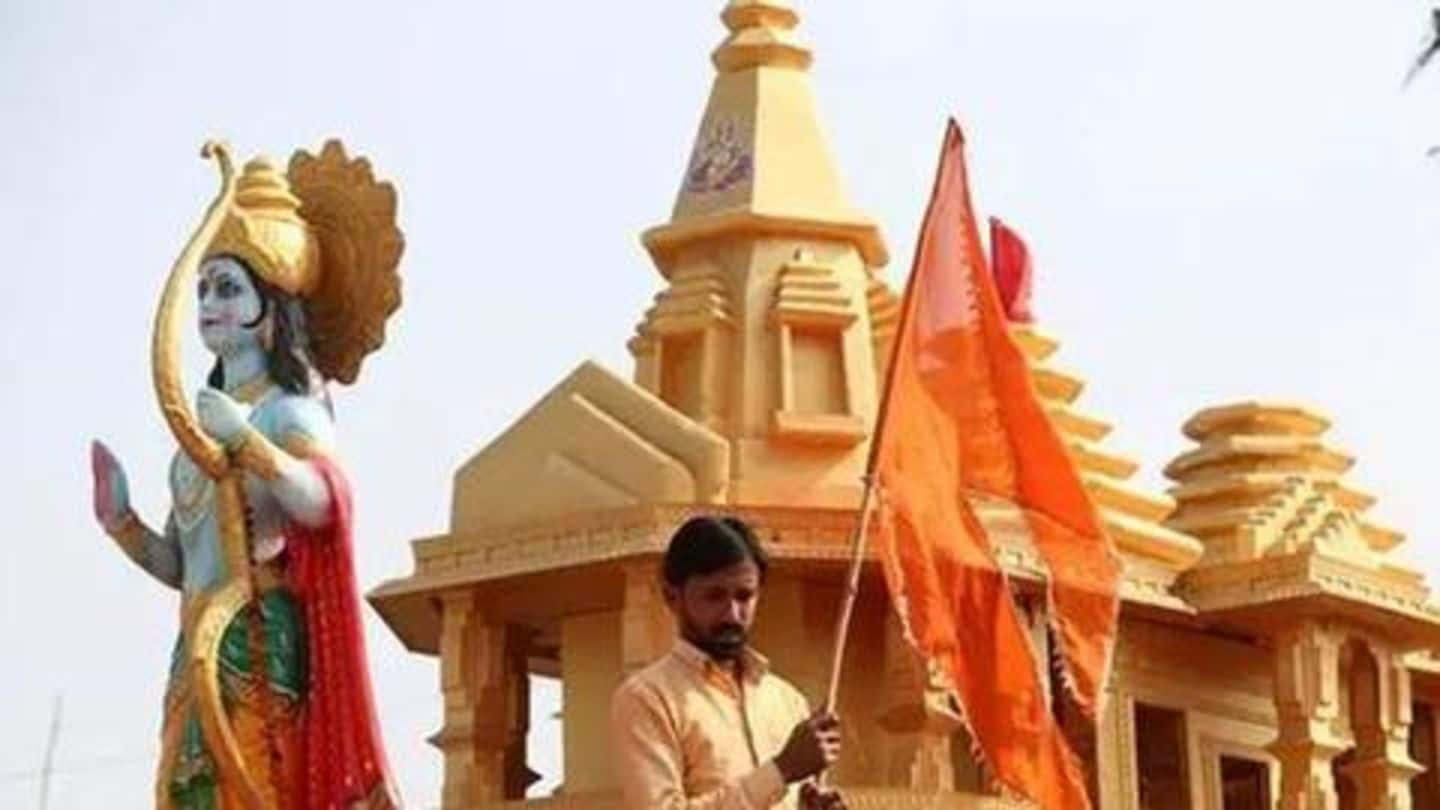
Questioning faith of Hindus is difficult: SC on Ayodhya matter
What's the story
The Ayodhya dispute pertains to just 2.77 acres of land but its implications are far-reaching. Both Muslims and Hindus want possession of the land, and the Supreme Court is hoping to solve the case by October. During Monday's hearing, a judge of the constitutional bench told the representative of Muslims' side that it will be difficult to question the faith of Hindus. Here's why.
Context
Why are Hindus and Muslims fighting for the plot?
To note, at the epicenter of this dispute, a 16th-century Babri Masjid stood. It was demolished in 1992 by Hindu activists who believed the mosque was built on ruins of a temple where Lord Rama took human form. In 2010, Allahabad High Court trifurcated the land among deity Ram Lalla, Sunni Waqf Board, and Nirmohi Akhada. Displeased, all parties then approached SC.
Proceedings
The arguments might wrap up by October 18
The constitutional bench, headed by Chief Justice Ranjan Gogoi, is hearing the matter on a daily basis, and from Monday decided to dedicate an extra hour in order to wrap up the arguments by October 18. If the deadline is met, a verdict will be out before November 17, when CJI Gogoi retires. The bench had also said mediation can happen simultaneously.
What happened
Even Muslim witness accepted the importance of Ayodhya: Justice Chandrachud
Now, during Monday's proceedings, when advocate Rajeev Dhavan representing Sunni Waqf Board opined that belief can't be the basis for claiming the property, Justice DY Chandrachud disagreed. He said, "You are challenging the belief of Hindus. That will be very difficult for you to question because even a Muslim witness has said that Ayodhya is to Hindus what Mecca is to Muslims."
Argument
Hindu parties just say Lord Rama was born here: Dhavan
In court, Dhavan contended that a deity in "exact form" was necessary to support Hindus' side. "Hindu parties just say Lord Rama was born here. None of the contours of the area is mentioned anywhere in the plaint. The suit is thus merely a vehicle to destroy and remove," he said. However, Dhavan added that Lord Rama has to be respected undoubtedly.
Remark
There can be deity without a form, said the bench
The bench didn't seem quite satisfied with his statements, as it remarked, "There can be a deity without form. For instance, in South India, there is a temple where open space is worshipped as a deity." The bench, also including Justices SA Bobde, SA Nazeer, and Ashok Bhushan was referring to a temple in Tamil Nadu where "open sky" is worshipped.
Details
Once a mosque, always a mosque, submitted Dhavan
Meanwhile, Dhavan also raised questions on the presence of "parikrama" at the disputed site. He said the description of the path changed with witnesses. Saying Muslims were in possession of the land, he added, "There's a difference between saying no prayers were held and saying it was abandoned. Once a mosque, always a mosque. This isn't abandonment. At best, it was not used."